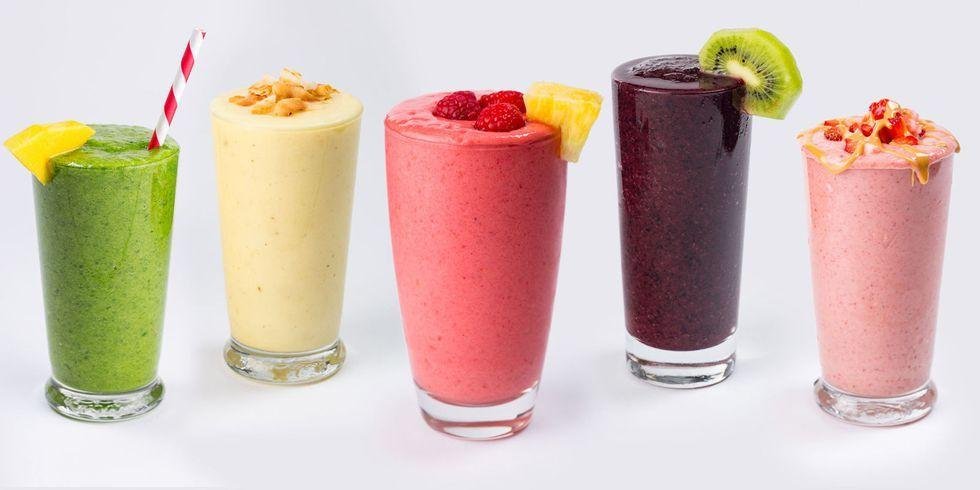The fruit smoothies market has seen a significant surge in popularity over the past decade, as consumers seek healthier, convenient, and nutrient-packed alternatives to traditional snacks and beverages. With the increasing demand for organic, dairy-free, and low-sugar products, fruit smoothies have emerged as a staple in many people's daily routines. However, despite its growth potential, the fruit smoothies market faces several limitations that could affect its long-term sustainability and profitability. In this article, we explore the key challenges that hinder the progress of the fruit smoothies industry and limit its potential for expansion.

1. Seasonality and Supply Chain Constraints-
One of the major challenges in the fruit smoothies market is the seasonality of fresh fruits. Many fruits used in smoothies, such as berries, mangoes, and peaches, are only available during certain times of the year, which can cause disruptions in supply. This leads to price fluctuations, lower product availability, and potential quality issues for consumers. While frozen fruits are a viable alternative, they often require additional processing and packaging, which can drive up costs and affect the nutritional profile of the smoothies. Furthermore, the supply chain for fresh produce is often complex and vulnerable to disruptions due to weather events, trade policies, and geopolitical issues.
2. High Competition and Saturation-
The fruit smoothies market is becoming increasingly competitive, with a plethora of brands and businesses entering the space. From local juice bars to large multinational companies, consumers now have a wide range of options when it comes to purchasing smoothies. This intense competition has led to market saturation, making it difficult for new entrants to stand out or gain significant market share. Additionally, price wars are common as brands try to undercut each other, which can harm profitability, especially for smaller businesses that lack the economies of scale that larger corporations enjoy.
3. Consumer Health Perceptions and Sugar Content-
While fruit smoothies are generally considered a healthier option, many consumers are becoming more health-conscious and scrutinizing the sugar content in their drinks. Even though fruit is naturally sweet, the high sugar content in certain fruits or added sweeteners used in smoothies can deter health-conscious individuals. This has led to increasing demand for low-sugar, sugar-free, or artificially sweetened products. However, reducing sugar content often comes with trade-offs, such as altering the flavor or texture of the smoothie, which can affect consumer satisfaction and brand loyalty. This tension between health trends and taste preferences can be a challenge for companies looking to innovate and meet the diverse needs of their customer base.
4. Price Sensitivity and Affordability-
Another limitation facing the fruit smoothies market is the price sensitivity of consumers. High-quality ingredients, particularly organic fruits, dairy-free alternatives, and exotic superfoods, can significantly increase the production costs of smoothies. While premium products can command higher prices, many consumers, particularly in price-sensitive segments, may opt for cheaper alternatives or DIY smoothies made at home. Additionally, smoothies purchased at cafes or smoothie bars can be expensive, and some customers may be hesitant to pay a premium for what they perceive as a simple beverage. Brands must balance quality with affordability to remain competitive in a market where price is a key determinant of consumer choice.
5. Shelf Life and Packaging Challenges-
Smoothies, especially those sold as ready-to-drink products, often face challenges related to shelf life and packaging. Fresh smoothies, once bottled, have a limited shelf life due to the natural degradation of fruits and vegetables. To extend shelf life, preservatives or artificial additives may be used, which can compromise the "freshness" and natural appeal of the product. Furthermore, packaging is a critical factor in maintaining the integrity of smoothies, but many companies struggle with finding sustainable packaging options that protect the product while minimizing environmental impact. Consumers are increasingly concerned with eco-friendly packaging, and companies that fail to address this demand may face negative brand perception.
6. Health Claims and Regulatory Scrutiny-
As the fruit smoothies market grows, so does the scrutiny from regulatory bodies and health organizations. In an industry where health claims are a major selling point, companies must ensure that their products meet the necessary nutritional standards and comply with labeling regulations. False or misleading health claims can lead to legal challenges, recalls, or reputational damage. Additionally, some smoothie brands may face pressure to prove that their products provide the specific health benefits they advertise, such as boosting immunity, aiding digestion, or supporting weight loss. This increasing regulatory environment can limit innovation and marketing flexibility for companies in the space.
Conclusion-
The fruit smoothies market is filled with potential, but it is not without its limitations. From supply chain issues and intense competition to health concerns and rising consumer expectations, companies must navigate these challenges carefully in order to succeed. The key to overcoming these obstacles lies in innovation, strategic partnerships, and a deep understanding of consumer preferences. By addressing issues such as seasonality, sugar content, packaging, and pricing, businesses can carve out a niche in this dynamic and competitive market, ultimately capitalizing on the growing demand for healthier beverage options.


